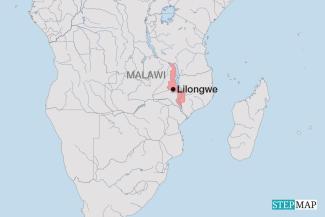Artificial intelligence
AI innovations by Malawian students: Tackling health and agricultural challenges

Students from the Biomedical engineering class have developed a web and mobile application that utilises deep learning to diagnose measles through skin lesion analysis which gives results in 0.25 seconds, unlike PCR and immunoglobin tests which take longer.
William Chonzie, the Biomedical Engineering students’ leader says, “Transfer learning techniques were employed utilising Keras and TensorFlow. A larger data set was curated by combining images from three different sources.”
Guided by their professors, the students applied different scientific processes and procedures to enhance the model’s performance.
Measles remains one of Malawi’s leading killer diseases, especially among infants. As an airborne illness, its spread is rapid. The student innovation can ensure that communities can detect such cases early and seek medical attention.
Peter Mwambananji, a manufacturing engineering lecturer, has pioneered the invention of a system that uses machine learning to analyse soil and environmental factors to recommend suitable crops for farming. Now, the system only relies on static weather data. He intends to use AI to train the system further to retrieve dynamic data from online sources through API calls.
“As the world is going digital, so are most resources. To have power at the top of your fingertips is very important. Farmers who use crop recommendation systems are assured of getting fast results that are based on data-backed evidence,” Mwambananji says, adding that “the service is low cost since it will only use the internet if they prefer the web app or smart mobile app platforms, and also free of charge for the USSD version.”
Similarly, another MUST student, Syton Mphaka, a student pursuing a bachelor’s degree of science in meteorology and climate science, has come up with an early drought and flood detection system.
Mphaka’s innovative system detects water levels and processes the data. It functions by using a phone SIM card and is, therefore, able to send out messages and activate an alarm or sirens as a warning.
When the water levels are high, the system will detect through river gauges which will automatically send messages to the communities through sirens for everybody within 300 meters to alert or warn the communities about the danger.
“The system has sensors which are used to collect data about water level changes. The changes in water levels are the primary predictor for flooding or drought. The display will be installed in the community where people will go to see water levels without necessarily going into the rivers around them because the process will be done digitally,” Mphaka says.
Innovations such as those being pioneered by students and faculty at MUST, demonstrate the value that academic institutions have in contributing to solving pressing community challenges. Malawi’s government must support such efforts which leverage artificial intelligence to make daily life easier for people.
Benson Kunchezera is a Malawian freelance journalist based in Blantyre.
bkunchezera84@gmail.com








